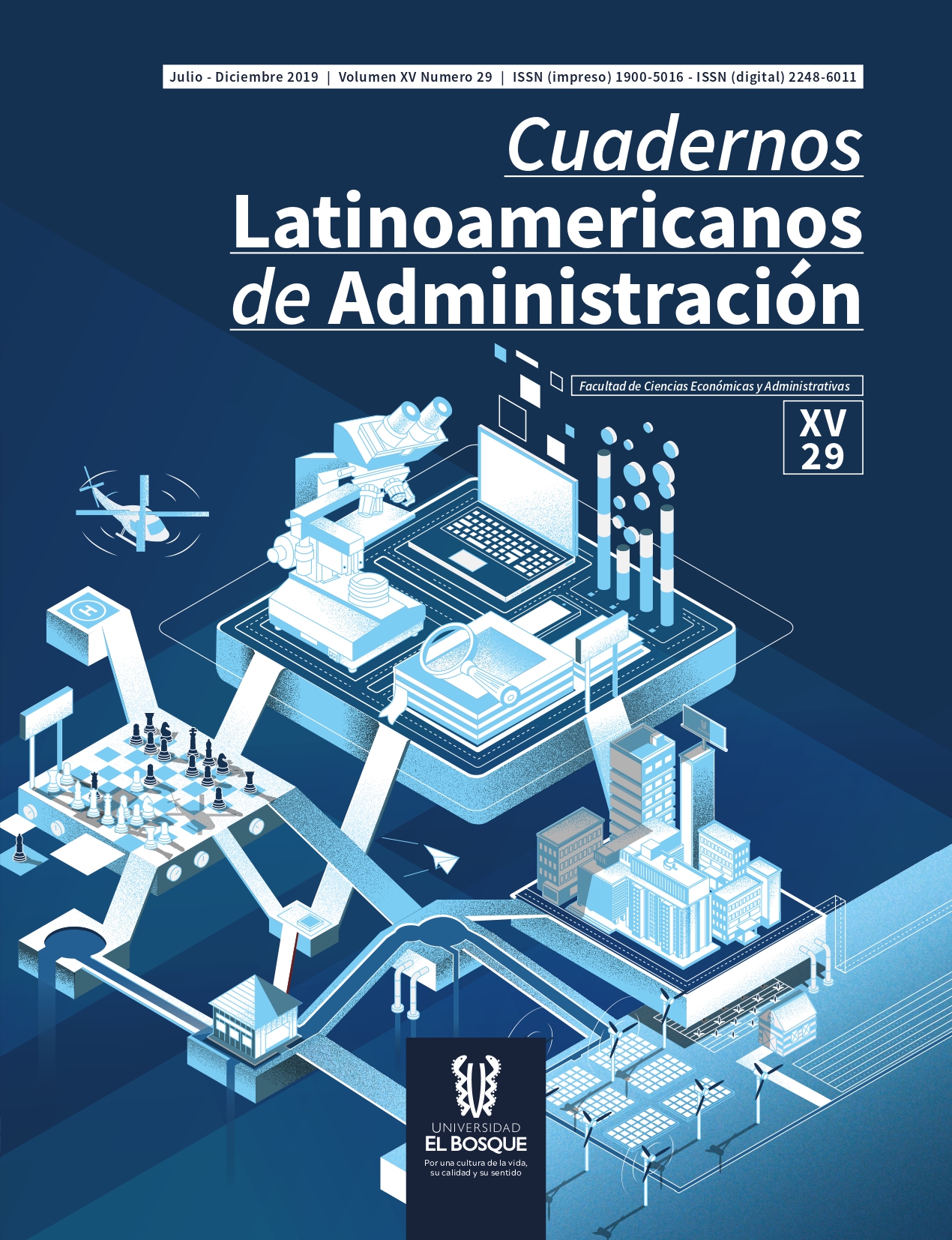The knowledge society and gender gaps in science, technology and innovation
DOI:
https://doi.org/10.18270/cuaderlam.v15i29.2871Keywords:
gender gaps, stereotype, science, technology, innovation, public politicsAbstract
In this article, it is intended to analyze how gender stereotypes prevent the insertion, participation and promotion of women in the spaces of Science, Technology and Innovation, in a context of productive change oriented at the consolidation of the knowledge society. For this, with descriptive research supported on a documentary analysis, statistics on the problematic are presented worldwide and specific studies are referenced for Latin America, that demonstrate how gender gaps are still valid at the level of training and employment, which causes exclusion in decision-making instances and inequality salary, with effects studied in the productivity of countries. This situation, requires political actions to integrate the gender perspective, in the processes of science, technology and innovation.
Downloads
References
Brewster, K. L., & Rindfuss, R. R. (2000). Fertility and women´s employment in industrialized nations. Annual Review of Sociology, 26: 271-296.
Castillo, R., Grazzi, M., & Tacsir, E. (2014). Women in Science and Technology: What Does the Literature Say? Washington: Banco Interamericano de Desarrollo (BID).
Castillo, R & Montes, B. (2014) Análisis de los estereotipos de género actuales. Anales de Psicología, 30(3):1044-1060.
Catalyst Information Center (2013). Why Diversity Matters. New York: Albert Einstein College.
Comisión Económica para América Latina y el Caribe (CEPAL). (2014). El nuevo paradigma productivo y tecnológico. La necesidad de políticas para la autonomía económica de las mujeres. New York: Naciones Unidas.
Cuberes, D., & Teigner, M. (2014). Agregate Costs of Gender Gaps in the Labor Market: A Quantitative Estimate. Economic Working Papers, 14(308): 1-29.
European Commission. (2013). Gendered Innovations How Gender Analysis Contributes to Research. Luxembourg: Publications Office of the European Union
Federici, S. (2004). Calibán y la bruja. Mujeres, cuerpo y acumulación originaria. Madrid: Editorial Traficantes de sueños.
Foro Consultivo Científico y Tecnológico (FCCyT). (2013). Una mirada a la ciencia, tecnología e innovación con perspectiva de género: Hacia un diseño de políticas públicas. México, Distrito Federal: (FCCyT).
International Labour Organization. (2019). A Quantum Leap for Gender Equality. For a better future of work for all. Geneva, Switzerland: The International Labour Office.
Kabeer, N., & Natali, L. (2013). Gender Equality and Economic Growth: Is there a Win-Win. Working paper. Institute of Development Studies, 2013(417): 1-58.
Levanon, A., England, P., & Allison, P. D. (2009). Occupational feminization and pay: Assessing causal dynamics using 1950-2000. U.S. Census Data. Social Forces, 88(2): 865-892.
López, V., Grazzi, M., Guillard, C., & Salazar, M. (2018). Las brechas de género en ciencia, tecnología e innovación en América Latina y el Caribe Resultados de una recolección piloto y propuesta metodológica para la medición. Washington D.C: Banco Interamericano de Desarrollo (BID).
Marín, G., Barrantes, E. G., & Chavarría, S. (2008). Differences in Perception of Computer Sciences and Informatics due to Gender and Experience. CLEI Electronic Journal, 2008.
National Academy of Sciences (US), National Academy of Engineering (US), and Institute of Medicine (US). (2007). Beyond Bias and Barriers: Fulfilling the Potential of Women in Academic Science and Engineering. Washington, DC: National Academies Press (US). https://doi.org/10.17226/11741.
Naciones Unidas (NU) & Comisión Económica para América Latina y el Caribe (CEPAL). (2012). Cambio estructural para la igualdad. Una visión integrada del desarrollo. Santiago de Chile: Naciones Unidas.
Naciones Unidas. (2018). Hacer las promesas realidad: La igualdad de género en la agenda 2030 para el Desarrollo Sostenible. New York: ONU MUJERES.
Olivari, J. (2017). Los costos de la desigualdad de género en ciencia, tecnología e innovación en América Latina y el Caribe: Nueva evidencia empírica. Santiago de Chile: Banco Interamericano de Desarrollo (BID).
Rivera, L., Mairesse, J., & Cowan, R. (2017). Gender Gaps and Scientific Productivity in Middle Income Countries: Evidence from Mexico. Washington: Banco Interamericano de Desarrollo (BID).
Robert, V., & Yoguel, G. (2010). La dinámica compleja de la innovación y el desarrollo económico. Desarrollo Económico, 50 (199): 423-453.
UNESCO. (2007). Science, Technology and Gender: An International Report. Paris, Francia: UNESCO. www.unesco.org
UNESCO. (2018). Informe de la UNESCO sobre la Ciencia, hacia 2030: Informe regional de América Latina y el Caribe. Paris, Francia: UNESCO. www.unesco.org
Wodon, Q., & De la Briere, B. (2018). The Cost of Gender Inequality Unrealized Potential: The High Cost of Gender Inequality in Earnings. Washington, D.C: Grupo del Banco Mundial.
World Economic Forum. (2017). The Global Gender Gap Report. Geneva, Switzerland: World Economic Forum’s Publications. www.weforum.org
Word Intellectual Property Organization (WIPO). (2017). Patent Cooperation Treaty Yearly Review 2017. The International Patent System. Geneva, Switzerland: WIPO.
Downloads
Published
How to Cite
Issue
Section
License
The authors when they send their articles for evaluation certify originality and transfer the proprietary rights to the Journal
Latin American notebooks Administration, University El Bosque, for dissemination in print and / or electronic. But scientific evidence, originality, content of the documents are the exclusive and sole responsibility of the authors.













